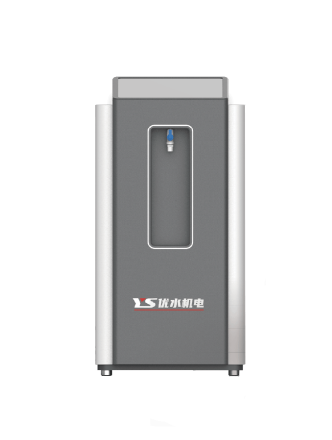Ultrapure water for clinical laboratory standard use
Release time: 2025-04-02
In clinical laboratories, ultrapure water is used as standard water, which requires that the ultrapure water production equipment is compliant and stable. Ultrapure water has a decisive influence on the repeatability of experimental results.
Ultrapure Water Standards for Clinical Laboratories
Meet compliance requirements
International standards and regulations:
Clinical laboratories must follow standards such as CLIA and ISO 15189, which clearly require that experimental water must meet specific purity (such as Class I water in ISO 3696 or CLSI GP40-A3 standard).
Using ultrapure water can avoid impurities interfering with test results and ensure data compliance.
Certification and audit:
Using ultrapure water is one of the key conditions for laboratories to pass CAP or FDA audits.
Meet the experimental stability requirements
Control interferences:
Ionic contaminants may change enzyme activity or cause protein precipitation.
Organic matter can interfere with cell culture or immunoassays, resulting in false positives/negatives.
Instrument protection:
Ultrapure water can prevent pipe blockage or column contamination of precision instruments such as HPLC and mass spectrometry, extending the life of the equipment.
Avoid repetitive experiments
Consistency of water quality parameters:
The low ion content and stable TOC level of ultrapure water can ensure consistent experimental conditions between batches. For example, in molecular diagnosis, the presence of nucleases or metal ions in water may cause DNA/RNA degradation and affect the repeatability of Ct values of qPCR.
Traceability and records: Clinical laboratory ultrapure water systems are usually equipped with real-time monitoring, data traceability, and meet GLP requirements.
The following treatment methods are used to ensure that the high standards required for clinical laboratory water are met:
Reverse osmosis treatment: First, reverse osmosis technology is used to remove most of the dissolved substances, bacteria and organic matter in the water, reducing the total dissolved solids content in the water.
Deionization treatment: Deionization resin is used to further remove dissolved ions in the water, such as sodium, calcium, magnesium and other ions. Deionization technology ensures that the ion concentration in the water is close to zero, meeting the requirements of ultrapure water.
Activated carbon filtration: Further remove organic matter, chlorine and other pollutants in the water to ensure the purity of the water quality.
Ultraviolet disinfection: Ultraviolet irradiation can effectively kill microorganisms in the water and ensure that ultrapure water is sterile.
Ultrafiltration treatment: Use ultrafiltration membrane to further remove tiny particles and microorganisms in the water to ensure that the cleanliness of the water reaches extremely high standards.
Ultrapure water filtration equipment undergoes strict production processes and quality control to ensure that clinical trials meet standards in terms of compliance, stability and repeatability.


LH_WH_600x800px.webp)